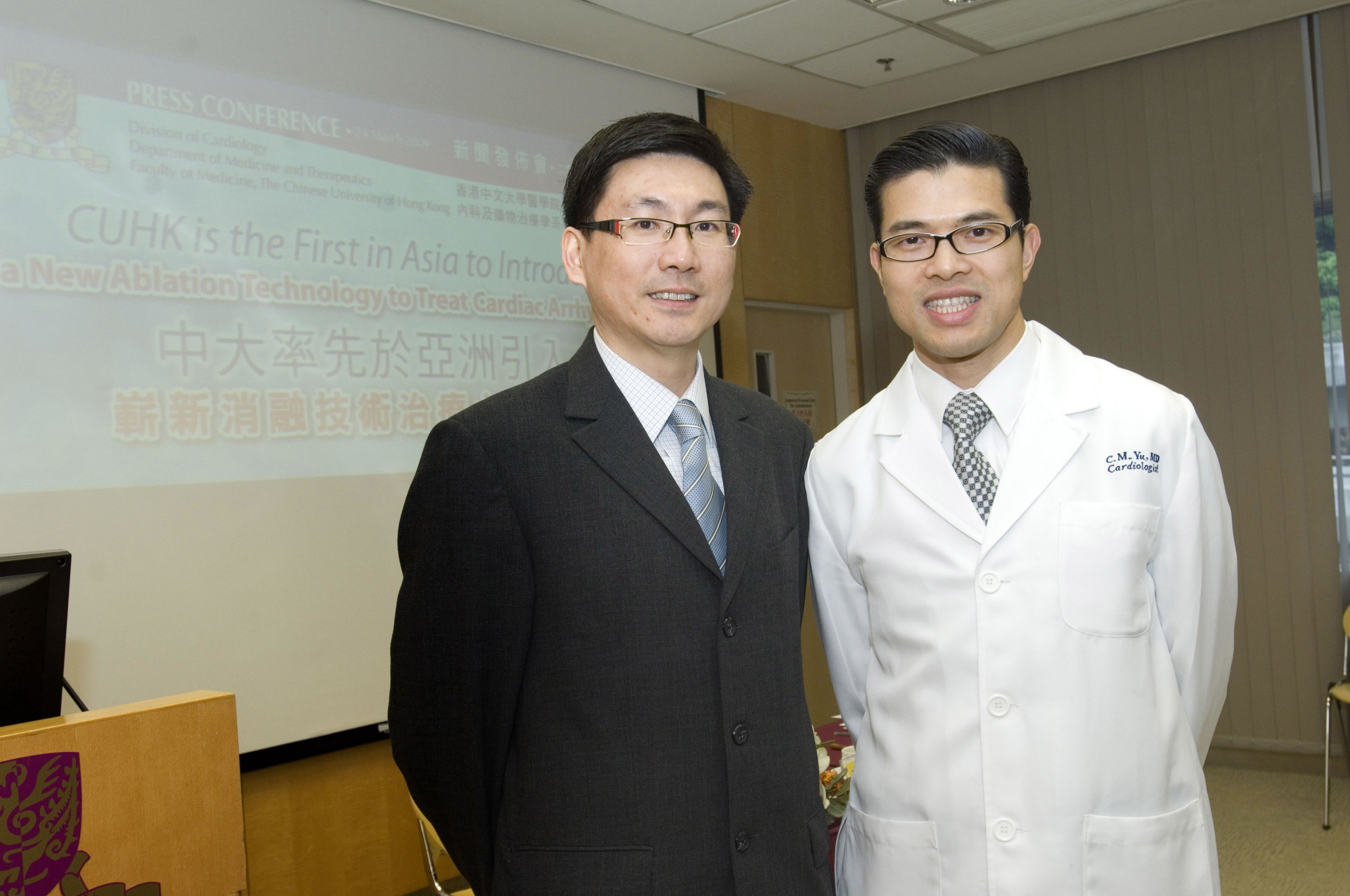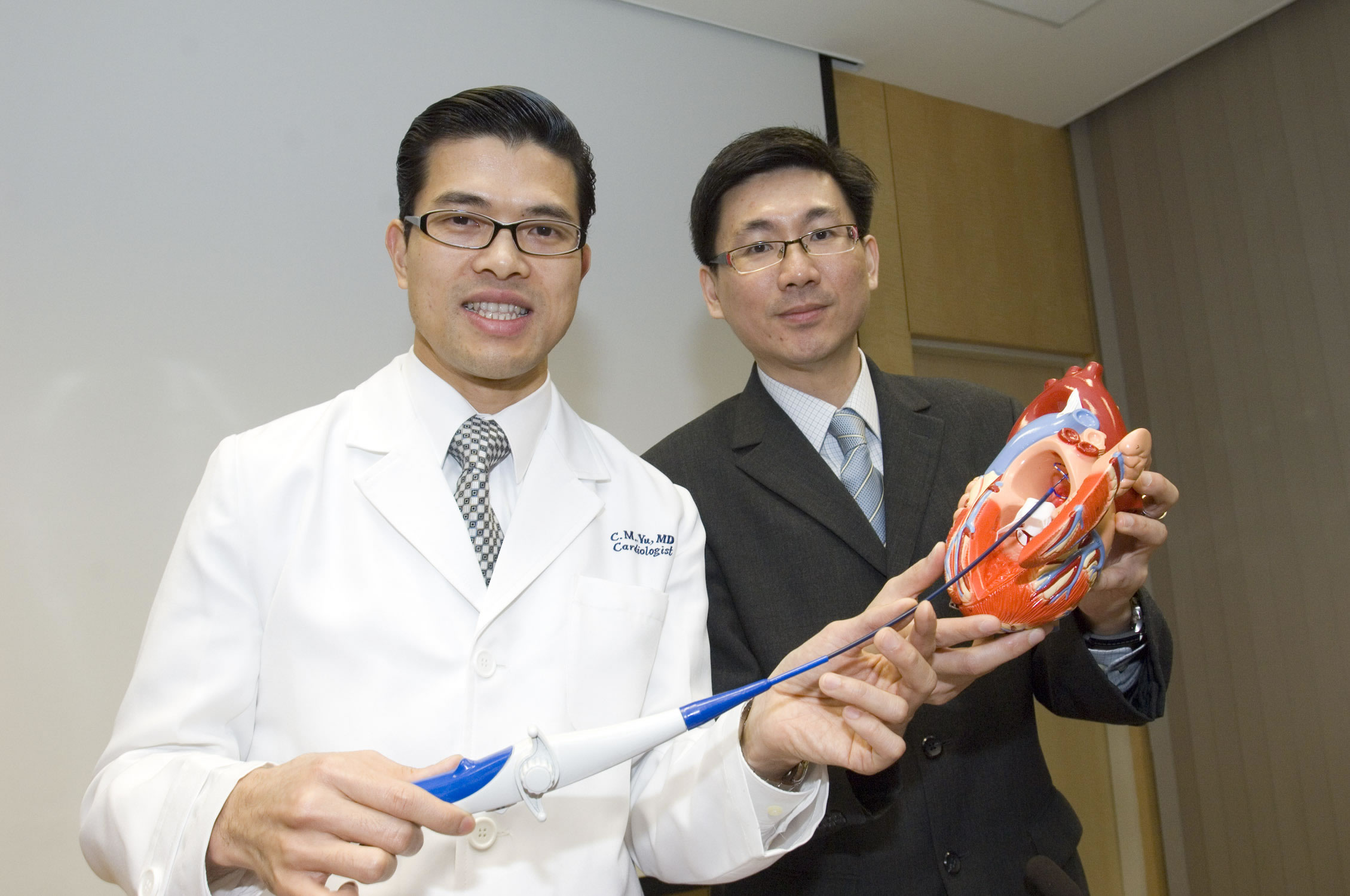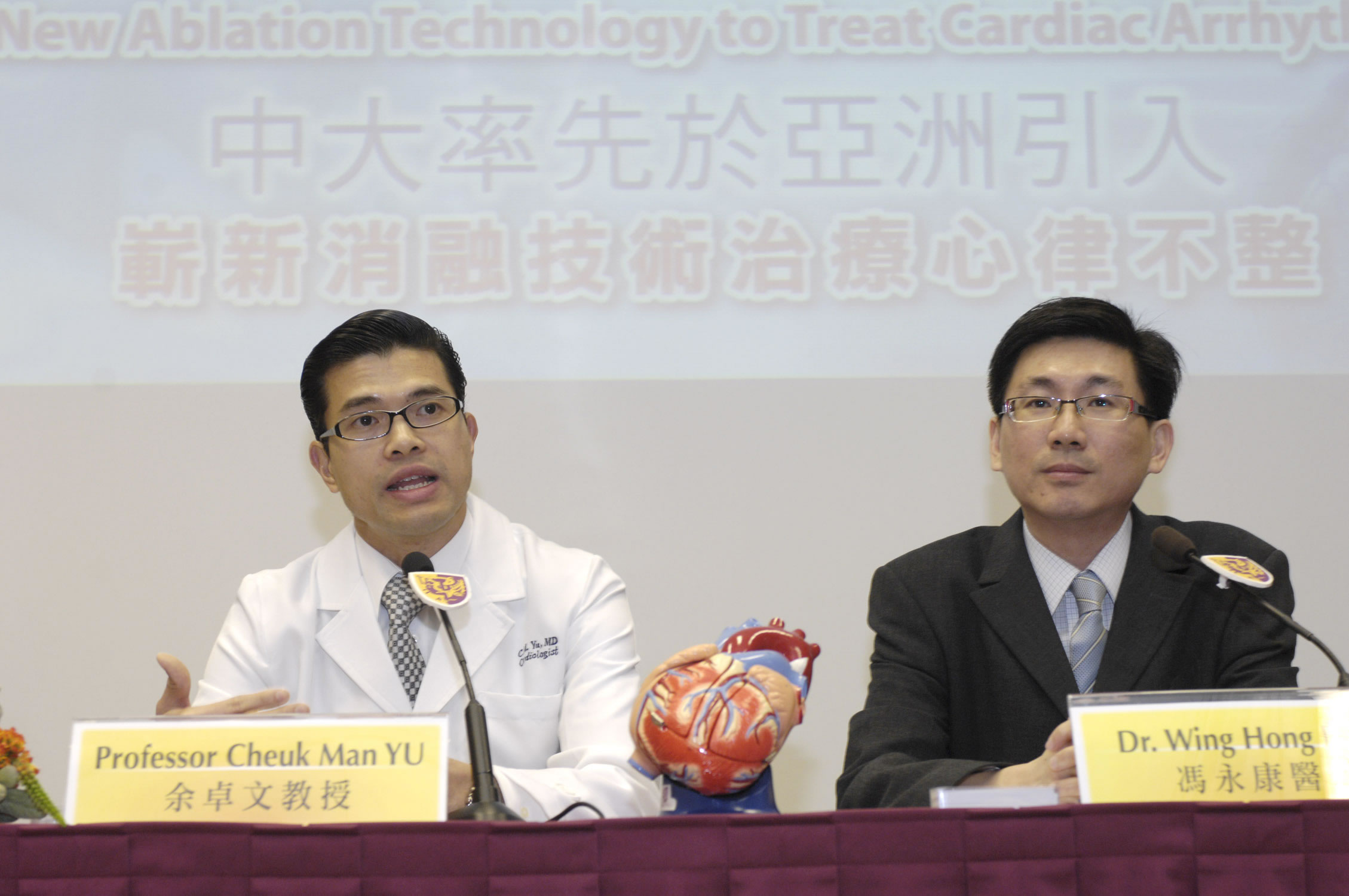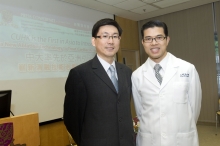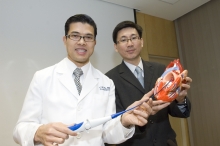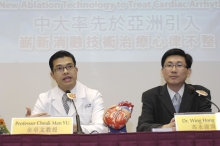CUHK
News Centre
CUHK is the first in Asia to Introduce aNew Ablation Technology to Treat Cardiac Arrhythmia
Cardiac arrhythmia is a common heart problem. Among various types of arrhythmia, atrial fibrillation (AF) is the commonest disease. AF is characterized by a disorganized and very rapid beating of the heart’s upper chambers, known as the atria. It is a major health problem worldwide. Around 7 million people worldwide and roughly 1% of the general population in Hong Kong are estimated to have AF. AF is more common in the elderly though it can happen at any age. It is estimated that about 70,000 people over 65 years old in Hong Kong may be affected. AF can lead to palpitation, heart failure, stroke and frequent hospitalization, and has a higher death rate than those in normal rhythm.
Conventional treatment approaches to AF have relied mostly on drug therapy although the efficacy is well-known to be low. As a result, patients often remain bothered by symptoms and complications of AF as well as side effects of the drugs, such as thyroid disorder or lung complication which can be lethal. A few years ago, it was discovered that the cause of AF is related to electrical impulses from the pulmonary veins, and blocking of these impulses from going to the heart may lead to elimination or even cure of AF. At present, doctors would maneuver a small catheter to the heart and deliver a controlled amount of radiofrequency (RF) energy to create a blockage between the pulmonary veins and the heart. However, this ablation catheter has only a single tip to deliver the energy. Although this standard approach has shown to be safe and effective for treating AF, such point to point method usually takes quite a long time (5-6 hours) to accomplish and the success rate is only about 70%.
Professor Yu Cheuk-man and Dr. Fung Wing-hong, Division of Cardiology, Department of Medicine and Therapeutics and the Institute of Vascular Medicine at The Chinese University of Hong Kong (CUHK) are among the first two physicians in Asia to introduce a new ablation technology to treat AF. The new technology is a major breakthrough which delivers a fast, flexible and effective RF energy during ablation of AF. It makes use of multi-electrode catheters to deliver RF to any or all electrodes simultaneously. Furthermore, doctors can further adjust the shape of the catheter and then activate (or de-activate) specific electrodes. The catheter designs are suitable for reaching the pulmonary veins to perform ablation safely and quickly. Apart from these advantages over conventional ablation, the new technology consumes less energy and for the first time allows the operator to control the depth of the structure for ablation at the touch of a button.
Since its introduction in November 2008, 12 patients have undergone AF ablation using the new technology in the Prince of Wales Hospital. The mean procedural time has been shortened significantly to 2-3 hours with more than 50% reduction when compared to those using conventional approaches in the CUHK catheter laboratory. With a mean follow-up of 3 months, over 80% of the patients have no recurrence of AF even without medication, which appears to be slightly better than the conventional approach.
Therefore, the study demonstrated that the use of the new ablation technology can greatly reduce procedural time with a higher success rate. This in turn shortens the waiting time and benefits more patients who can now receive effective treatment timely for a common but serious arrhythmia disorder.
Dr. Fung Wing-hong (left), Clinical Assistant Professor (honorary), Division of Cardiology; and Professor Yu Cheuk-man, Professor of Medicine and Therapeutics, Head of Division of Cardiology, Department of Medicine and Therapeutics, Faculty of Medicine, CUHK


